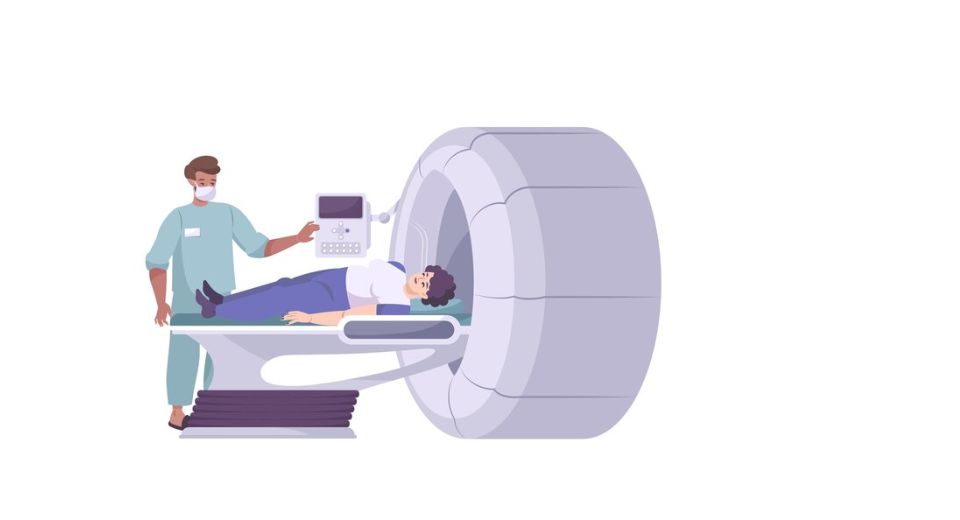
Jan 24, 2025

The Global Pediatric MRI market, according to Metastat Insight, indicates a sector which is experiencing considerable growth and offers much promise. The advances being made in the medical imaging equipment have brought the diagnosis and treatment processes of pediatric patients to an increased level. In this medical industry, there is the tool of magnetic resonance imaging, in which a majority of young children cannot verbalize their symptoms. The demand for such precise and early diagnosis has led pediatric MRI to be an essential component of modern health care. Pediatric MRI gives highly detailed images of the child's brain, spine, and other vital organs.
Global Pediatric MRI market is estimated to reach $4,772.52 million in 2025 with a CAGR of 7.6% from 2025 to 2032.
MRI technology is a breakthrough innovation in pediatric health care as it can give good resolution 3D images, without using any ionizing radiation. In this respect, an MRI uses the magnetic field of the earth with radio waves, which produces great pictures inside a human body when assessing delicate children's anatomy. It has also come in very handy for diagnosis cases of neurological conditions, musculoskeletal conditions, and congenital conditions which are extremely vital for children to live and become well in terms of their pediatrician.
Major reasons for growth in the Global Pediatric MRI market: Increasing occurrences of pediatric conditions require sophisticated methods for diagnosis. There has been an increase in cases of brain tumors, epilepsy, and congenital heart defects among children who require accurate and precise imaging. Pediatric MRI is a non-invasive approach to the conditions; therefore, the doctors are in a better position to take a decision about treatment plans without the need for invasive procedures for the young patients.
The trend that has become most evident in the market has been the production of pediatric-specific MRI machines. Such machines are developed keeping in mind the needs of children, so as to make them less anxious and more comfortable in the process of imaging. Some of them even feature an environment with a soothing noise, low-intensity lights, and cartoonlike decoration to lighten the stress burden a child is placed under by going through this test. With the improvement brought in this, compliance in the patient's response to these diagnostic machines has also increased and consequently provided accurate results for analysis.
The pediatric-specific contrast agents for use in MRI scanning have further progressed the diagnostic procedures. These types of agents offer better quality imaging, with images that can facilitate better tissue discrimination and more excellent detection of pathological changes. Given the hardware component of MRI scanners and the sophisticated software developed into these machines, pediatric imaging procedures have become less time-consuming and more accurate to a greater portion of the populace.
The Global Pediatric MRI is further being aided by the rising health infrastructures in many emerging economies. As the emerging economies are heavily investing in the healthcare system of their respective nations, they tend to embrace all the modern techniques, including pediatric MRI, that can be adopted to enhance their diagnostic ability. This will be opening more scope for the accessibility of quality imaging services to such regions, hitherto it was lacking and thus further expand the pediatric services to the entire family in these regions around the world.
Despite the promising growth in this sector, there is still a long way to go. One of the most pressing issues is that the cost for purchasing and maintaining MRI equipment is quite high. The cost of purchasing MRI machines, training the staff, and ensuring continuous maintenance is a hindrance to most healthcare facilities, especially those from low-resource backgrounds. However, as technology continues to advance and become less expensive, these challenges are likely to decrease, making MRI more accessible to a larger number of healthcare providers.
Moreover, the market growth will face a challenge by the shortage of trained professionals in the pediatric MRI field. A constant requirement exists for radiologists and technicians to have knowledge on pediatric imaging in order to carry out the scans appropriately and then analyze them properly. However, more educational programs related to pediatric imaging are available nowadays, which can help fill up the rising requirement for such professional skills.
In terms of regional growth, North America holds a significant share of the Global Pediatric MRI market, largely due to its advanced healthcare infrastructure, high awareness levels, and strong demand for cutting-edge medical technologies. Europe also maintains a substantial market presence, driven by increasing investments in healthcare and rising demand for pediatric imaging services. Meanwhile, the Asia-Pacific region will experience the most rapid growth over the next few years, given the focus of the Chinese and Indian governments on strengthening their health-care systems and broadening access to state-of-the-art diagnostic technology.
Therefore, the Global Pediatric MRI market, as discussed in the Metastat Insight report, presents a health sector which is growing very rapidly due to its improvement through better technology, rising demand for non-invasive diagnosis methods, and greater accessibility of health services. Improvements in MRI technology with pediatric suitability and development of contrast agents and other equipment will present new avenues to better outcomes in children's healthcare. The future of pediatric MRI seems bright because, despite its remaining challenges, its affordability, accessibility, and professional training are increasingly improved. The sector promises to continue playing a central role in providing essential care to children worldwide.
Drop us an email at:
Call us on:
+1 214 613 5758
+91 73850 57479